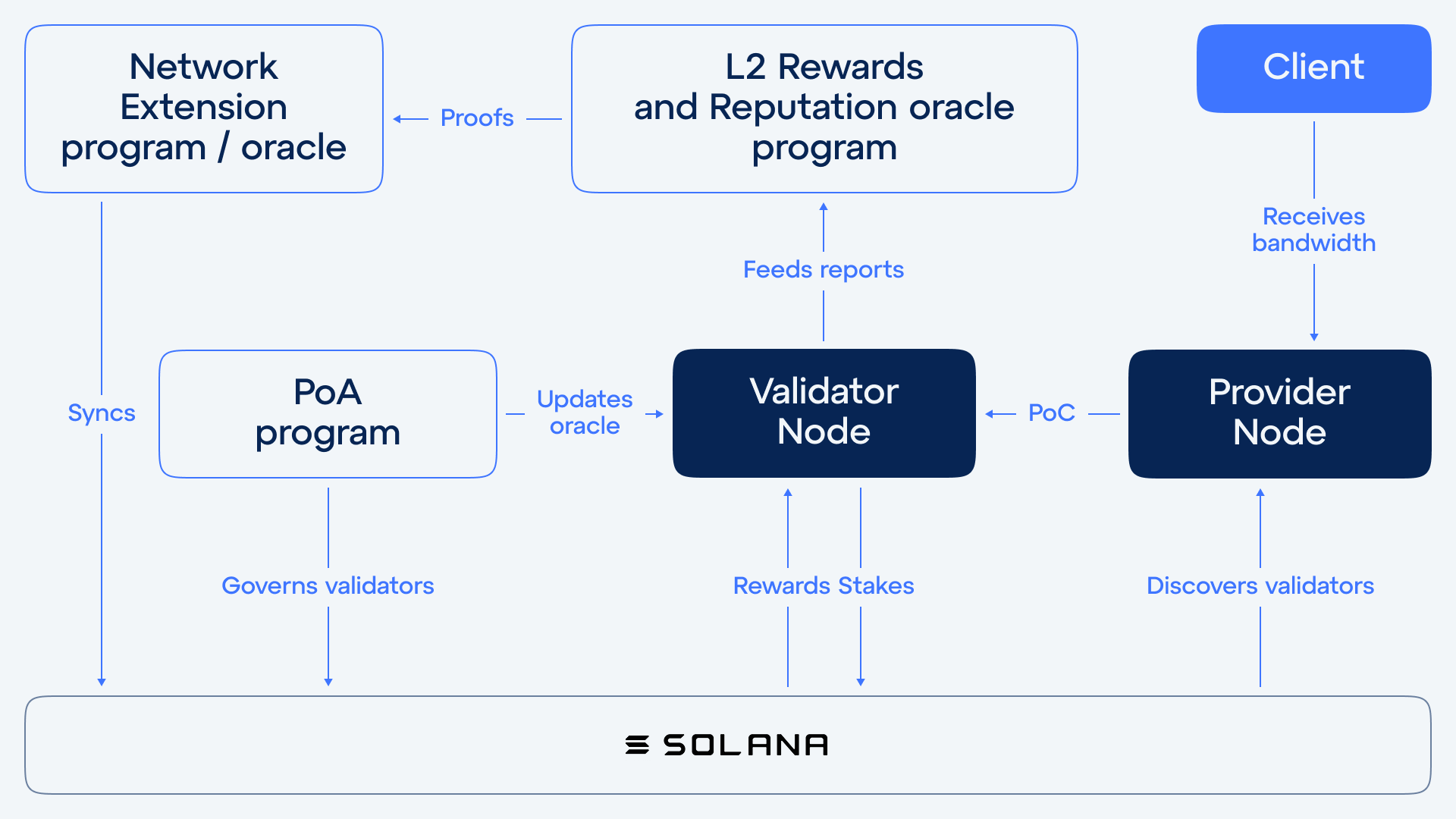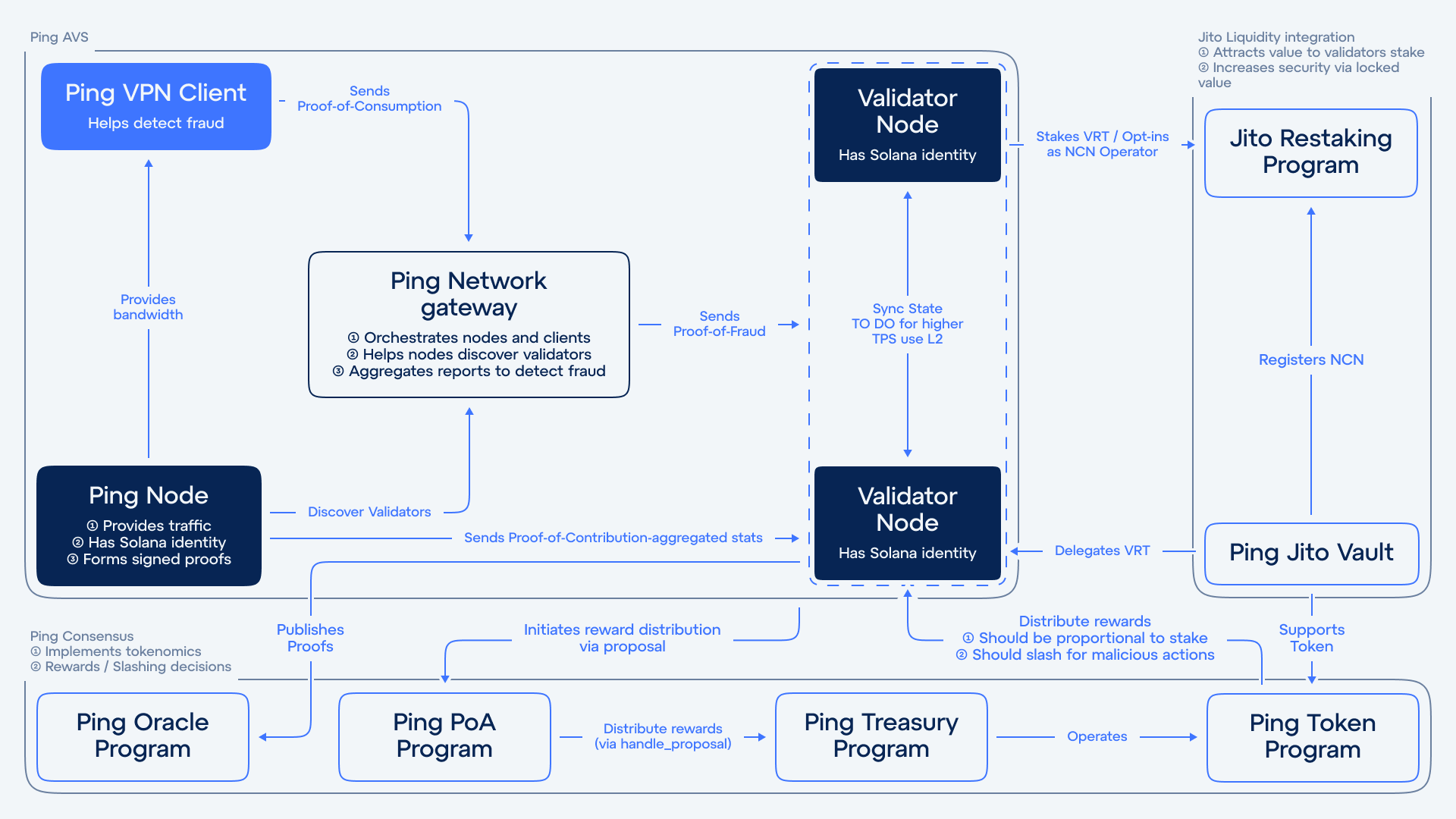Introduction
Validators operate on a specialized Layer 2 (L2) system built on top of Solana, and are responsible for validating network activity, managing access, and distributing rewards. Validators are a core part of the Ping Network. They help keep the network secure, fair, and operational by handling key responsibilities:- Verify node performance
- Maintain a live registry of active providers
- Ensure the bandwidth network runs smoothly
Ping’s architecture is built with strict data boundaries — validators never have access to user traffic or private content.

Discovery AVS
Discovery AVS is part of the Ping backend. It helps nodes find available validators and sends relevant data to the web app. It also monitors the network for abnormal behavior. When a malicious node is detected, AVS signs a penalty transaction and broadcasts it to the L2 ledger — triggering enforcement.AVS operates strictly at the network level. It does not access or analyze user traffic. Its role is to maintain the integrity of the system without compromising privacy.
NCN — Node Consensus Network
The Node Consensus Network (NCN) allows nodes and validators to discover and interact with each other trustlessly.- Validators publish node’s metadata (IP, uptime, performance) to a Solana-based oracle.
- Nodes query this oracle to find available validators.
- Nodes then submit signed proofs to validators.

Proofs & Smart Contracts (L2)
Ping’s L2 validator layer is powered by smart contracts that handle validation logic, rewards, and reputation. Validators process two main types of proofs:- Proof-of-Contribution (PoC): Submitted by nodes to verify bandwidth usage, uptime, and service quality.
- Proof-of-Fraud (PoF): Triggered when a node acts maliciously or incorrectly. PoF is signed by AVS and sent to L2.
- Rewards Oracle: Calculates node rewards based on activity and history.
- Reputation Oracle: Tracks node performance and adjusts rewards dynamically.
All reward and validation logic is transparent, verifiable, and executed on L2.
Staking & Security (Jito Restaking)
To become a validator, you must stake $VRT — this gives you access to validator duties and reward eligibility. Ping uses Jito Restaking to secure the L2 ledger and provide extra yield to stakers. Rewards are based on:- Stake size
- Network performance
- Ping tokenomics and distribution logic
In early phases, validators are directly paid for securing the network. If a validator misbehaves and a majority confirms it, slashing is applied — burning part of their funds.